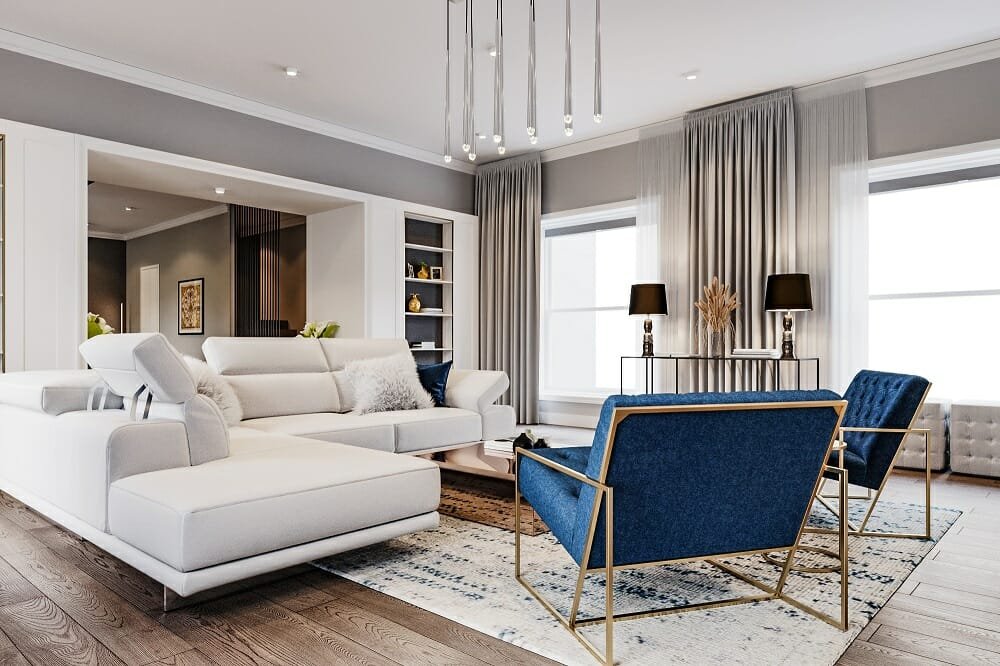What Makes an Interior Designer Important for Improving Your Office?
When picturing the perfect home or workspace, lots of people focus on private aspects— color schemes, furnishings, illumination— without recognizing exactly how these aspects must integrate to develop an atmosphere that is both functional and cosmetically pleasing. Lisa Tharp Interior is where an interior designer ends up being vital. More than just decorators, indoor designers are experienced specialists that understand the psychology of space, the principles of design, and the technical knowledge needed to bring a vision to life.
Interior design is not just about making an area look appealing. It is a tactical process that includes detailed planning, expertise of materials, an understanding of spatial circulation, and a deep appreciation for how individuals communicate with their atmosphere. Every room has an objective, and a well-designed area improves that function by guaranteeing convenience, effectiveness, and elegance coexist perfectly.
One of one of the most critical roles of an interior designer is to balance imagination with functionality. As an example, a magnificently designed living room sheds its appeal if it does not have comfy seating plans or proper lighting. A cooking area may include high-end finishes, however if the design does not support easy movement, dish preparation can come to be irritating. An interior designer takes into consideration these sensible components, making sure that the aesthetic vision does not compromise functionality.

Past aesthetics, interior developers likewise integrate technical skills right into their job. They have to understand building codes, architectural needs, and products' sturdiness. They deal with designers and specialists to guarantee their designs are possible and certified with security laws. Additionally, they often incorporate lasting and energy-efficient remedies, aiding customers minimize their environmental influence while producing much healthier living and working spaces.
 One more element that sets expert indoor developers apart is their capability to individualize spaces according to the client's unique requirements and way of living. They take the time to recognize a customer's preferences, routines, and objectives to produce a design that mirrors their character and boosts their every day life. Whether it is a tranquil and minimalist room, a vibrant and vibrant workplace, or a cozy and welcoming living space, an interior designer tailors every aspect to fit the individual or company they are designing for.
One more element that sets expert indoor developers apart is their capability to individualize spaces according to the client's unique requirements and way of living. They take the time to recognize a customer's preferences, routines, and objectives to produce a design that mirrors their character and boosts their every day life. Whether it is a tranquil and minimalist room, a vibrant and vibrant workplace, or a cozy and welcoming living space, an interior designer tailors every aspect to fit the individual or company they are designing for.
The impact of interior decoration expands past personal homes and right into business rooms. Lisa Tharp Interior depend on interior developers to develop atmospheres that cultivate efficiency, encourage customer involvement, and strengthen brand identity. A properly designed office can improve employee spirits and effectiveness, while an attentively arranged retail area can affect purchasing habits and sales. Hospitality design, from resorts to dining establishments, plays a substantial role in shaping consumer experiences and assumptions, confirming that interior decoration is not practically looks but likewise about functionality and psychology.
The process of collaborating with an interior designer typically starts with assessment and conceptualization. Developers gather info about the space, review the client's requirements, and create initial concepts. From there, they produce in-depth plans and state of mind boards, selecting colors, furniture, and products. Once the design is wrapped up, they oversee the execution, collaborating with service providers and providers to bring the vision to life. This level of project monitoring makes sure that the result straightens with the initial concept while staying within spending plan and timeline constraints.
Working with an interior designer is a financial investment in a room's lasting value and use. While some may see it as an unneeded expense, the knowledge of a developer can avoid expensive mistakes, optimize room efficiency, and develop a setting that boosts well-being. A properly designed space can enhance residential or commercial property value, making it a beneficial consideration for property owners and entrepreneur alike.
Eventually, interior developers are more than just professionals who choose colors and furnishings; they are visionaries that transform regular rooms right into remarkable atmospheres. Whether developing a home, a workplace, or an industrial establishment, their experience guarantees that every area tells a story, serves a purpose, and improves the lives of those that use it.